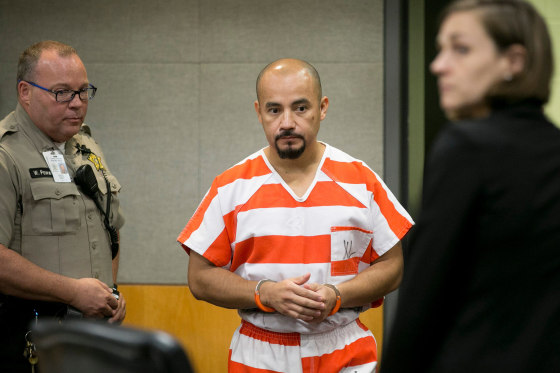WASHINGTON — The Supreme Court declined Monday to intervene over a Texas death row inmate's claim that his murder conviction should be thrown out because DNA evidence used at trial was later found to be flawed.
The justices turned away the appeal brought by Areli Escobar, who was convicted of the 2009 murder of 17-year-old Bianca Maldonado.
In a twist, prosecutors had agreed that the evidence was faulty and that a new trial was appropriate.
The case bears some similarity to one the court recently decided in favor of Oklahoma death row inmate Richard Glossip. In both cases, prosecutors have admitted fault, but state courts nevertheless ruled against the defendants. The Supreme Court ultimately threw out Glossip’s conviction.
The Escobar case puts the spotlight on the Texas Court of Criminal Appeals. In January 2022, the court upheld Escobar's conviction even though prosecutors conceded that the evidence was problematic.
Escobar filed his first appeal with the U.S. Supreme Court, which in January 2023 asked the state court to review his case a second time.
But in September 2023, the state court again ruled against Escobar, saying there was "no reasonable likelihood that the outcome would have changed if the false evidence had been replaced with accurate evidence."
Escobar was convicted and sentenced to death in 2011 for the murder of Maldonado, who was stabbed and sexually assaulted at her apartment in Austin, Texas.
Prosecutors heavily relied on DNA evidence analyzed by the Austin Police Department’s laboratory, as well as a private laboratory.
The police laboratory was later closed down after a state investigation showed evidence of widespread errors and bias.
In 2020, a state judge ruled that Escobar had suffered a due process violation as a result of "scientifically unreliable" evidence and deserved a new trial.
Escobar's lawyers said the appeals court's first ruling did not address the state's confession of error. The second ruling was even worse, they added, "rejecting any deference to the considered judgment of the law enforcement officers who secured the guilty verdict."
Travis County District Attorney Jose Garza wrote in a court filing in support of Escobar that the appeals court's decisions were "surprising" and that it had not adequately responded to the U.S. Supreme Court's earlier ruling saying further review was warranted.
"The state complied with its constitutional and statutory duties to rectify an injustice and remedy false evidence by conceding error," Garza wrote. And yet, he added, the appeals court "gave the state's viewpoint no weight."

